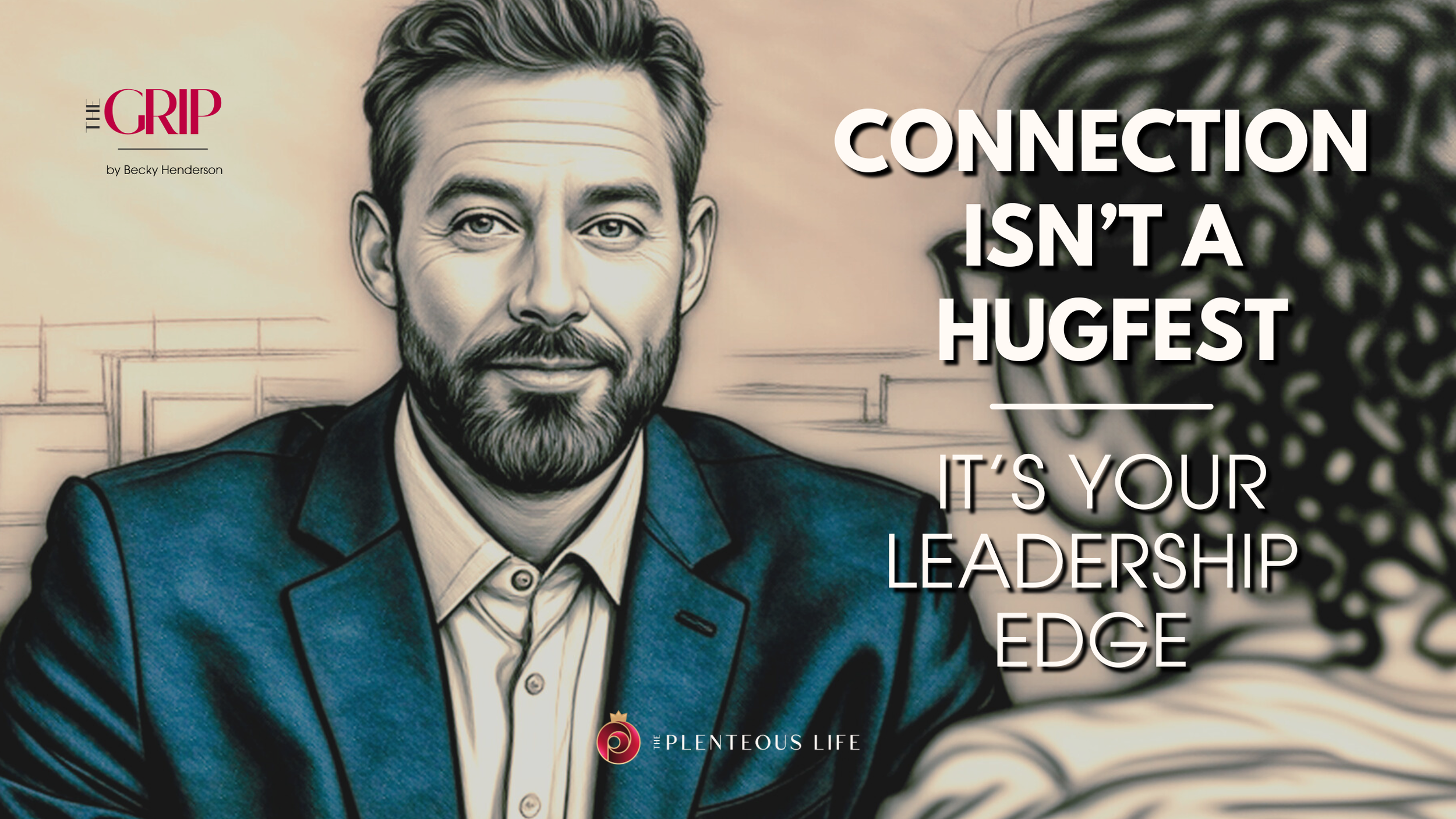CONNECTION ISN’T A HUGFEST:
IT’S YOUR LEADERSHIP EDGE
3-Minute Read
Leadership can be lonely. You’ve heard it before. Maybe you’ve felt it more times than you admit.
Loneliness in leadership doesn’t just leave you isolated from others. Without meaningful connection, you lose access to parts of yourself. Consider this: there are aspects of you that only show up in relationship with others.
C.S. Lewis said it best in The Four Loves when reflecting on the loss of his close friend Charles Williams, a fellow member of the Inklings:
“In each of my friends there is something that only some other friend can fully bring out. By myself I am not large enough to call the whole man into activity; I want other lights than my own to show all his facets.”
Leadership isn’t just about scaling a business; it’s about scaling you. And that doesn’t happen in a vacuum.
There are insights, strengths, and bold moves inside you right now, just waiting for the right person to pull them to the surface. But without that person—without those authentic connections—they stay dormant, untapped, and underutilized.
In this week’s issue of The Grip, we’re naming the cost of isolation, and reclaiming connection as a requirement, not a luxury, of leadership.
Let’s dive in.
the high cost of isolation at the top
You don’t have to “feel lonely” to suffer the consequences of loneliness in leadership. It's about being isolated emotionally, intellectually, and relationally. The most common pain points are lack of true peers, emotional suppression, relentless decision pressure, burnout risks, and inner doubt.
Leadership loneliness is expensive. It creates material consequences professionally and personally. Here’s what the research says:
72% of founders report mental health struggles.
Loneliness is often the hidden culprit behind them.Loneliness impairs decision-making.
Isolation leads to tunnel vision, risk aversion, and cognitive fatigue—the opposite of effective leadership.Loneliness is a health hazard.
It increases early mortality risk by 32%; equivalent to smoking 15 cigarettes a day.
The message is clear:
Isolation drains your energy and diminishes your impact. And yet most leaders stay stuck in it by default.
The Shift: From Lone Ranger to Connected Creator
Connection isn’t soft; it’s strategic. It multiplies your creativity, momentum, and resilience. The right people don’t just support you; they expand you. They illuminate the unseen facets of who you are. They help you see bigger, clearer, and bolder than you could see alone.
And no, this doesn’t require a dozen new relationships. Just one or two catalytic connections can shift everything.
So where do you find this kind of support? Start with:
A committed group of peers (like Lewis’ Inklings)
A trusted mentor or coach
A spouse or family member
A mastermind or leadership cohort
A faith-based or values-aligned community
You can find a leadership support group based on industry, stage of business growth or leadership development goals. Whatever the form, seek environments that offer high trust, unabashed vulnerability, and straight honesty. That’s the trifecta of authentic connection.
Here’s a brief overview of 10 types of groups to consider based on your season of leadership:
Not yet part of The Plenteous Life community? Subscribe to The Grip! Every week you’ll receive additional video, audio, and pdf tools directly in your email inbox to help you transform at both work and home.
Leadership Connection Check-In:
Remember, leadership loneliness won’t always “feel” lonely. So, look closer. Where is loneliness quietly costing you your power, peace, or potential?
This week, consider the following questions to identify where you would be served by greater support as you lead. This is a great practice for your team as well.
Who truly challenges and supports me as a peer?
Where am I carrying decision-making alone?
Who knows the real story behind my leadership wins and struggles?
Who gives me honest feedback I don’t have to ask for?
What would change if I shared more of the weight?
Where might I be missing new perspective because I’m siloed?
Which parts of myself might be lying dormant, waiting for the right connections to pull them forward?
Who sparks my creativity and pushes my thinking further?
What bold move could I make to initiate deeper support?
What conversations can I have without filters or concern of reactions?
“The right people don’t just support you; they expand you.”
In the high-pressure world of leadership, nobody succeeds alone. Even Jesus regularly withdrew from his disciples and the masses to connect with his support team.
The right circle doesn’t just support your next level. It calls it out of you.
By prioritizing authentic connection, you can strengthen your mental health, upgrade your decision-making, spark innovation, and ultimately love your life while making the impact you’re capable of. Your mission is counting on it.
Keep creating!
key takeaways
Why is leadership loneliness dangerous?
Isolation leads to poor decision-making, emotional burnout, and diminished impact.
What is the true role of connection in leadership?
Connection multiplies creativity, sharpens leadership clarity, and unlocks dormant strengths.
How can leaders create deeper connection?
Build high-trust circles: peer groups, mentors, masterminds, or values-aligned communities.
May you prosper in every way!
Becky & TPL Team




